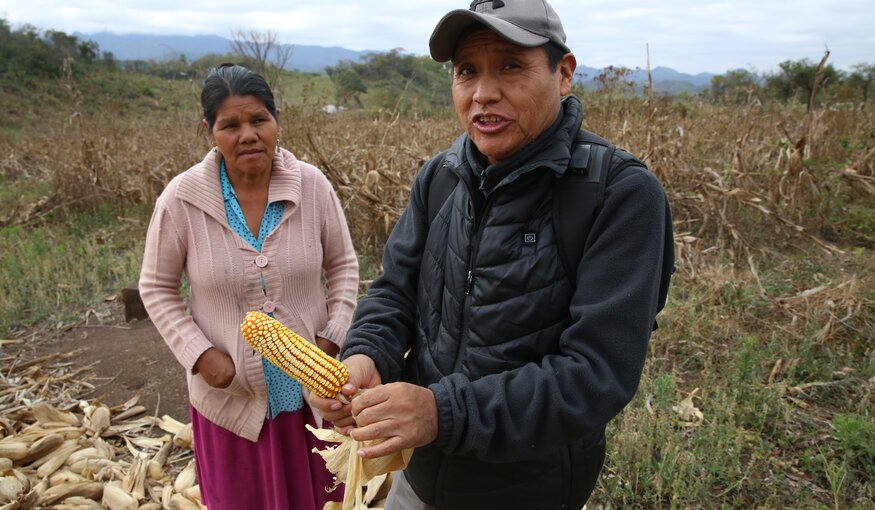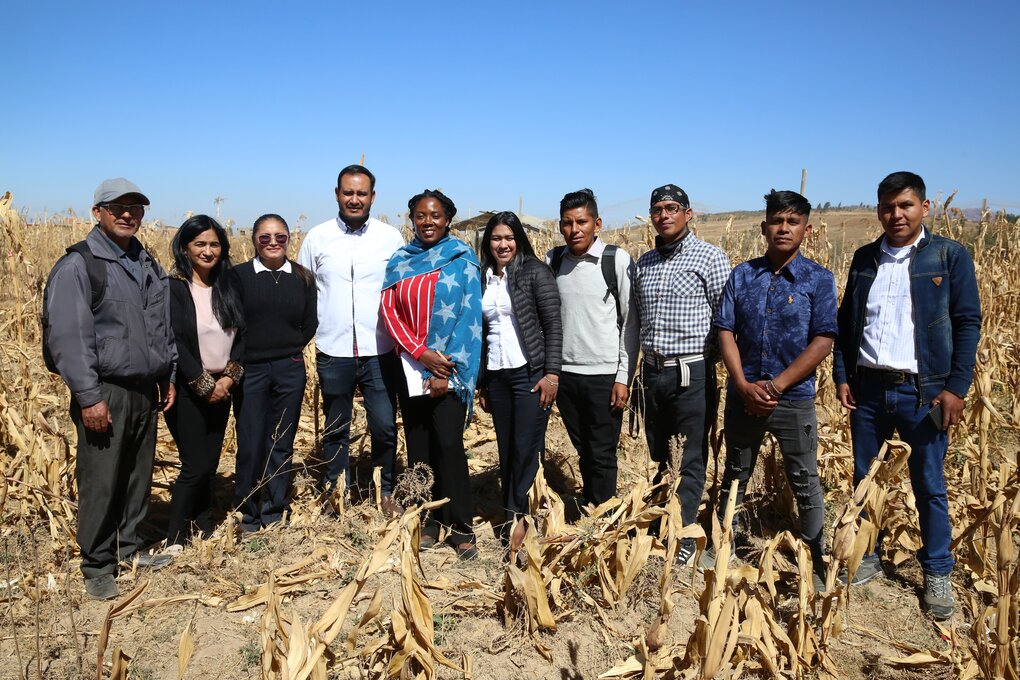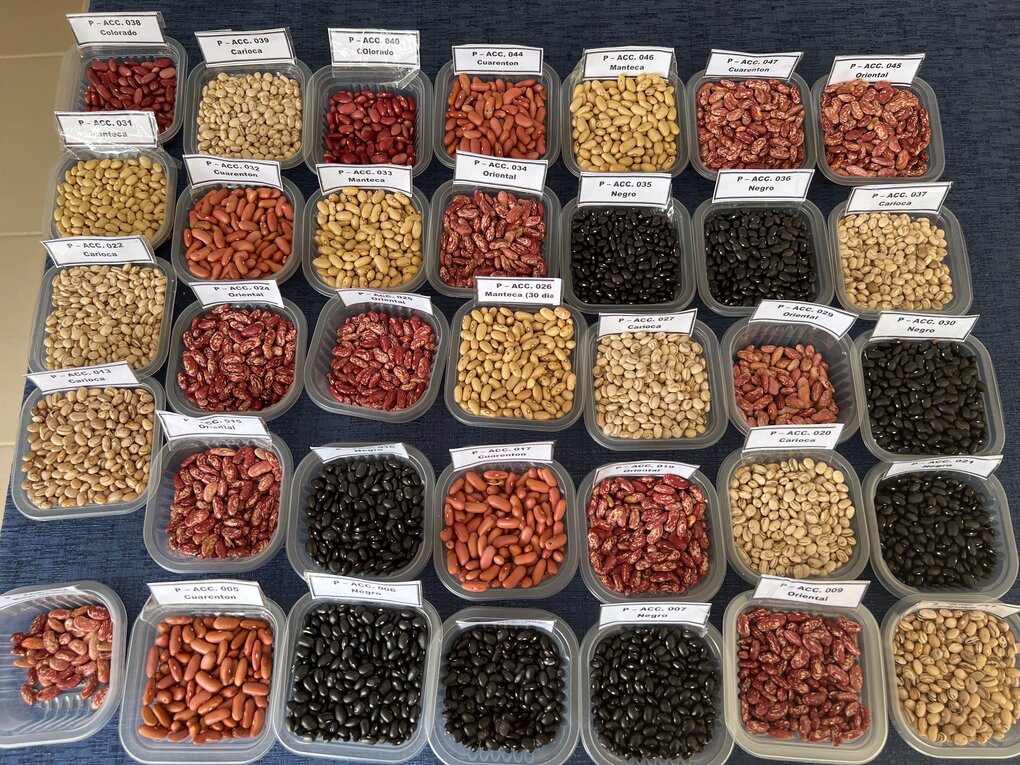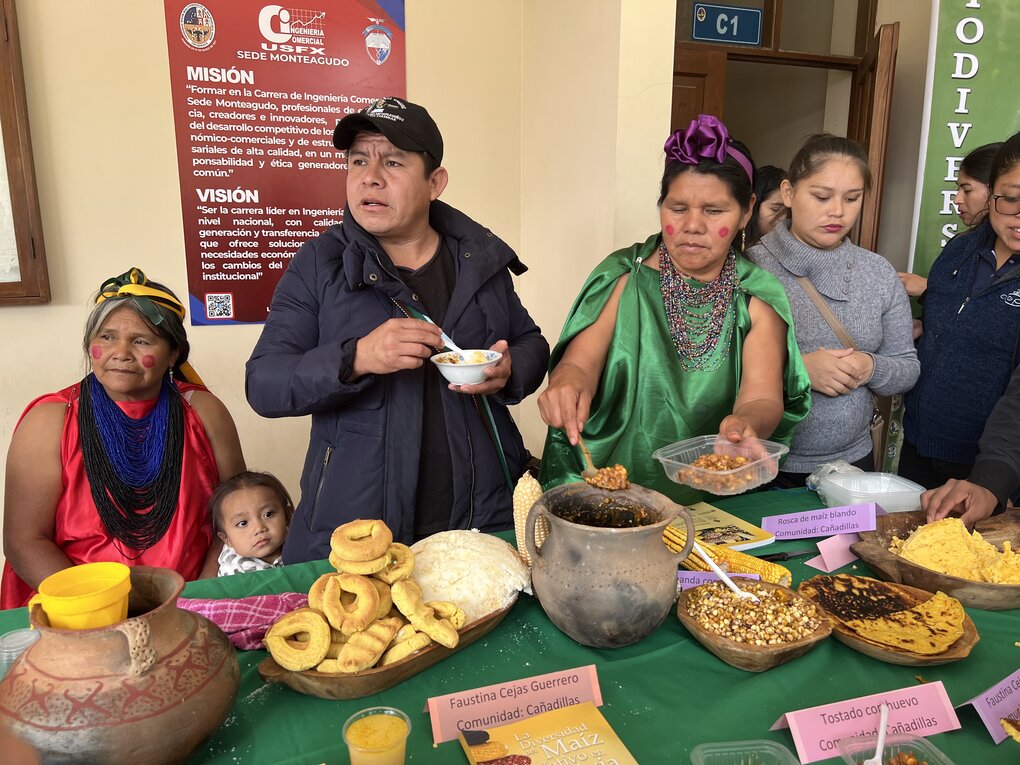400-Year-Old Bolivian Newcomer Ships Seeds to Svalbard

21 October 2024
A 400-year-old university in Bolivia is set to become the latest depositor to the Svalbard Global Seed Vault, thanks to support from the Government of Norway, channeled through the Crop Trust.
Founded in 1624, the Universidad Mayor Real y Pontificia de San Francisco Xavier de Chuquisaca in Sucre, Bolivia, is one of the oldest universities in the Americas. This year, it joins dozens of other institutions, new and old, that are saving seed collections for posterity in the Svalbard Global Seed Vault.
The Monteagudo Agrobiodiversity Genebank of the university’s Instituto Agroecología y Seguridad Alimentaria (Institute for Agroecology and Food Security – IASA) received financial support from the Biodiversity for Opportunities, Livelihoods and Development (BOLD) Project to regenerate seed samples of the maize and bean diversity it holds. IASA is now sending these seeds to the Arctic for long-term conservation.
This will be the first-ever deposit to Svalbard from Bolivia.
“I feel honored to carry high the name of our country,” said Martha Serrano Pacheco, Director of IASA. “Most of all, to give this gift to our university on its 400th anniversary.”
Reversing Trends and Guarding Seeds
Maize and beans underpin food security in Bolivia and are closely tied to the region’s Indigenous Peoples, including the Quechua and Guaraní.
“For us, crop diversity is not only food. It is our culture,” says Alfredo José Salinas, professor of seed technology at IASA. “Indigenous Peoples have grown the same varieties year after year, and each maize landrace means something different and special to them.”

L to R: Manuel Jiménez (responsible for relations with Indigenous communities); Martha Serrano (project leader); Jimena Quintanilla (intern); Alfredo Salinas (project coordinator); Beri Bonglim (Crop Trust); Lizbeth Surubí (intern); José Milton Chocaya (project volunteer); and Herlan Julio Rojas (scholarship student). Photo: Luis Salazar/Crop Trust.
But the diversity of these crops in farmers' hands has been declining as they started to turn to modern, higher-yielding varieties.
“My family used to grow a lot of purple maize when I was a child,” said Francisco, a university alumnus from the Wasi Wasi community. “But not anymore. Now they grow only white maize, which gives higher yields.”
To avoid losing their harvest because of early-season drought and frosts, farmers are increasingly being forced to abandon maize or focus on short-season varieties.
“Unfortunately, long periods of drought during the flowering period mean the producer ends up with empty cobs,” said plant breeder Heriberto Reynoso Montes. “Rains are becoming more irregular, and come later, which means sowing must be done later, too. But then the low temperatures during winter impact production.”
“We were changing, losing interest in our food and focusing on money,” said Vicente Ferreira, the Guaraní Captain, leader of that Nation. “We started eating rice and noodles, wheat bread and other foods that come from outside.”
So the local farming communities decided to react. When they saw that they were losing their diversity and culture, they started collecting seeds, and the university supported their efforts. Now, 125 farming families are registered as “Seed Guardians” and an association of local seed producers has been established.
Thanks to their efforts, some 274 maize and 226 bean accessions are now safeguarded in the university genebanks at Monteagudo and Yotala and at Iboperenda, in cooperation with a departamental government seedbank. The genebanks currently do not have facilities for long-term storage, which means the seed samples have to be regenerated frequently to maintain their viability. The Crop Trust provided freezers and aluminum foil packets for local long-term storage of seed samples, which will increase the longevity of the seeds in storage.

Bean diversity regenerated at Monteagudo, Bolivia. Twenty percent of the bean diversity in the university's collection was regenerated in 2023.
Back-Ups in Bolivia and the Arctic
Local Seed Guardians, genebank staff and farmers played a key role in the regeneration and characterization of maize and bean seeds from the genebank, with support from BOLD.
Samples of the regenerated seeds will be deposited at the National Germplasm Bank of Tolarapa, Bolivia, and backed up in the Svalbard Global Seed Vault for long-term safekeeping. They will also be kept in the active collections of the local genebanks.
“Having safety copies in Svalbard is not only keeping seeds; we’ll be safeguarding an Indigenous Nation – our ethnicity, our culture, our customs, everything,” said Ferreira.
As well as working with local communities, the project is giving university students the opportunity to gain an understanding of the importance of crop diversity and the challenges of conserving it for future generations.
“On behalf of the university, I can say that we are very grateful to the Crop Trust for providing substantial support to our genebank,” said Eric Mita Arancibia, the Vice Rector. “This project is not only safeguarding seeds for humanity and for the future; we are also generating and sharing technical know-how with our society.”
“The most gratifying thing is knowing that, thanks to BOLD, we’ve given a unique opportunity to our students and now any one of them can specialize in crop diversity conservation,” said Serrano. “Hopefully, they can take a wider road than the one we have taken.”

The Guaraní Captain, Vicente Ferreira (second from left), is a leading project collaborator. With him in the photo are two Guaraní farmers — Faustina Cejas and Luisa Quintanilla, —and Ruth Cleis Reynaga, the person in charge of strengthening relations with Indigenous communities, Gobernación de Chuquisaca.
Since 2021, the Crop Trust has worked with 42 partners worldwide to regenerate and safeguard vital seed collections. Through the BOLD Project, these partners ensure that key crop diversity remains alive and thriving in genebanks, backed up in another location, and secured for the future in the Svalbard Global Seed Vault. This essential work, supported by the Government of Norway, strengthens biodiversity, food security, and resilience for generations to come.
This story is one of many about the dedicated partners who have worked for years to regenerate seeds and send them to Svalbard for safekeeping.
Categories: For The Press, For Partners, For Policymakers, BOLD, Maize, Food Security, Nutritional Security




